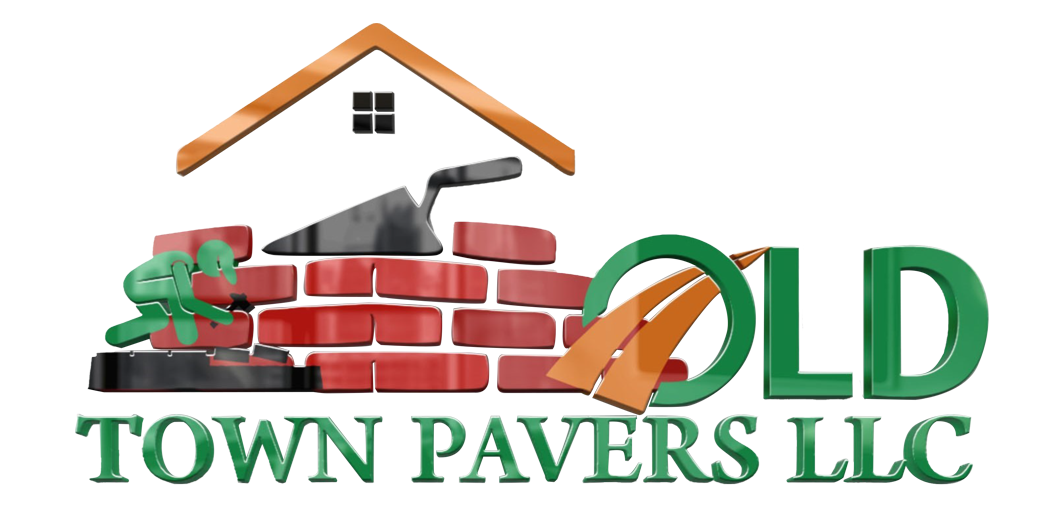Understanding Permeable Pavers
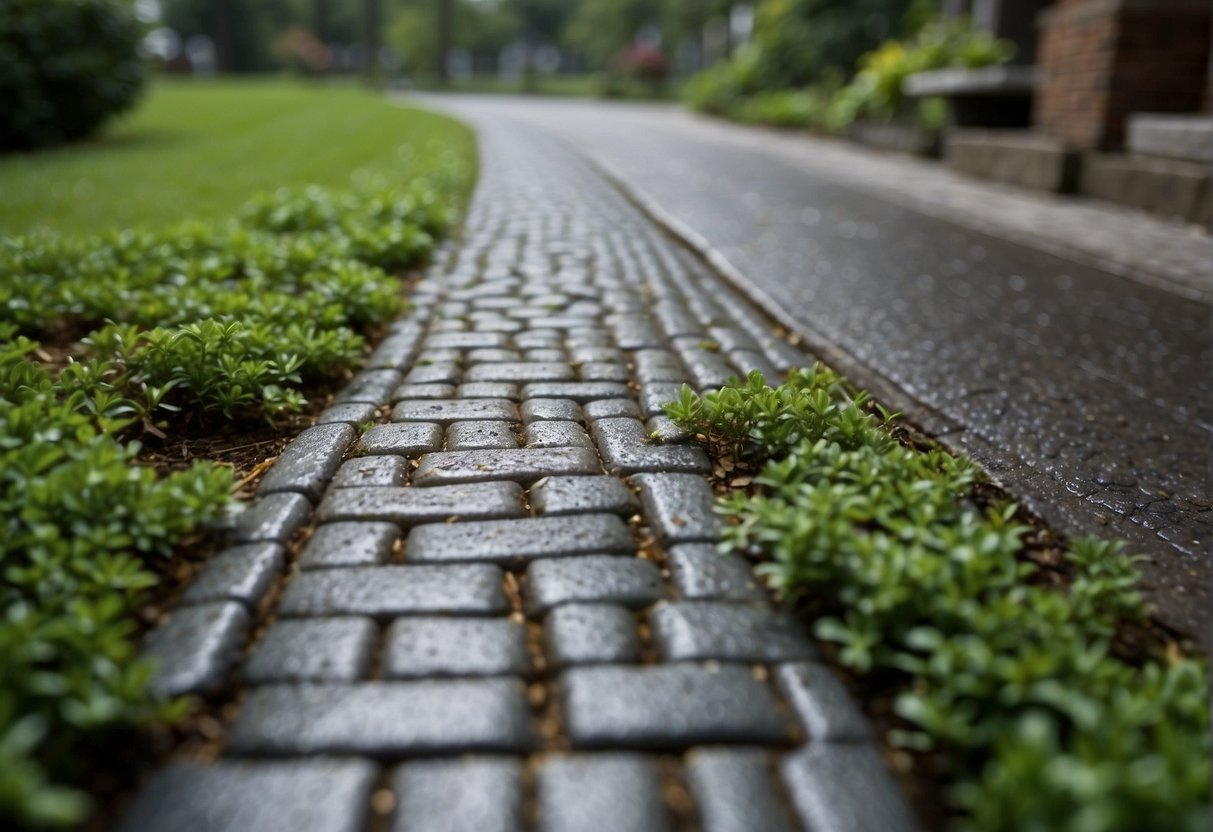
Permeable pavers provide a sustainable paving solution, allowing water to infiltrate through surfaces that would typically be impervious. We’ll explore the definition, how water filtration works, and compare permeable materials with traditional ones.
Defining Permeable Pavements
Permeable pavements are a type of paving material that allows water to pass through it into the ground below. They consist of a range of materials, including permeable concrete, pervious concrete, porous asphalt, and modular pavements made of plastic grids. These materials share a common characteristic: they are porous, permitting water to infiltrate.
The Science of Water Infiltration
The science behind water infiltration in permeable pavements lies in the void spaces within the pavement material. Pervious concrete and porous asphalt pavement, for example, are designed with a much higher porosity than traditional concrete or asphalt. This porosity is achieved through a carefully engineered mixture of aggregate and binder that leaves voids for water to pass through.
Comparing Traditional and Permeable Paving Materials
| Feature | Traditional Paving Materials | Permeable Paving Materials |
|---|---|---|
| Water Infiltration | Low to Non-existent | High |
| Surface Porosity | Low | High |
| Maintenance Requirements | Regular sealing required | Periodic cleaning of pores |
When comparing traditional materials like concrete and asphalt to permeable alternatives, the key differences lie in their ability to handle water. Regular concrete and asphalt are designed to be water-resistant, directing runoff to drainage systems. In contrast, types of permeable pavers, such as porous asphalt pavement and similar materials, encourage water to soak into the ground, reducing runoff and strain on sewage systems. This characteristic makes permeable pavers an ecologically sustainable choice for areas like Fort Myers, where managing stormwater is crucial.
Environmental Impact and Sustainability
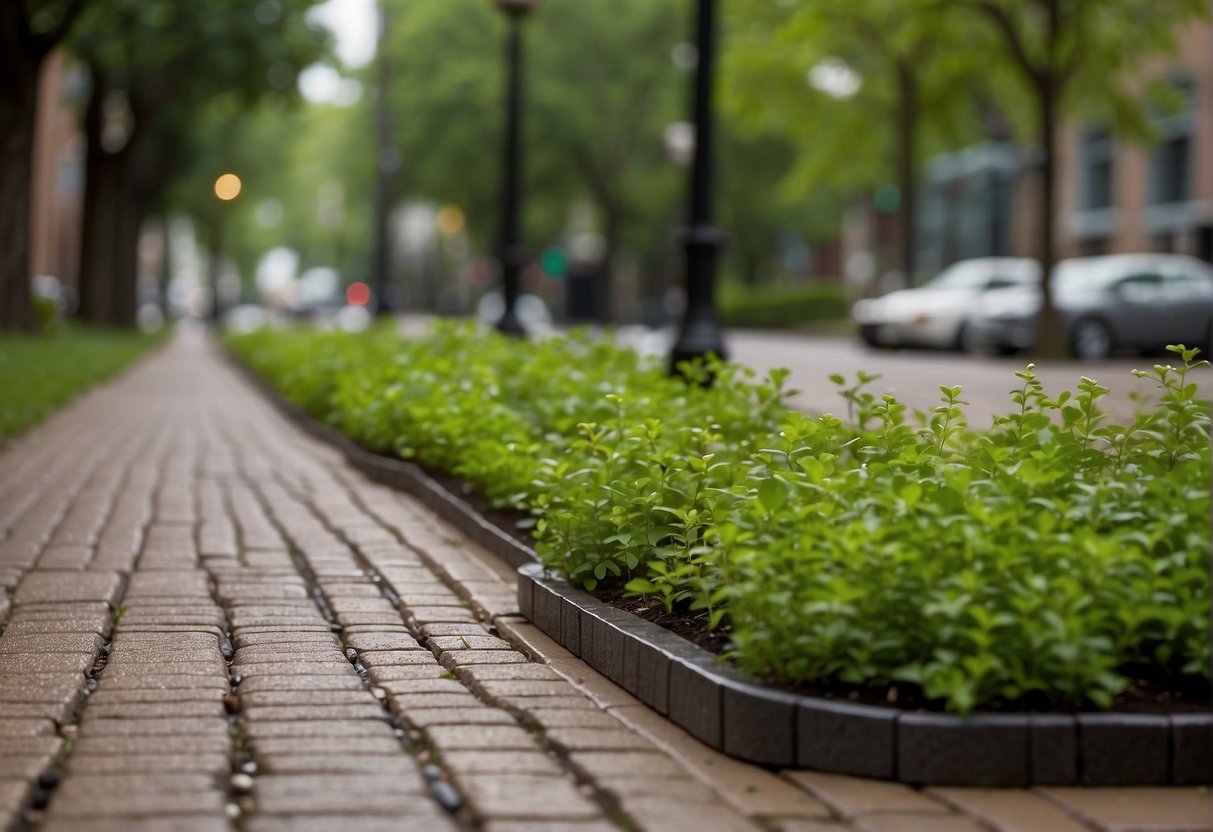
Permeable pavers in Fort Myers represent a sustainable solution with significant positive impacts on water management and environmental health. By addressing water quality and controlling stormwater runoff, these systems contribute to better water conservation practices and reduce pollutants entering our ecosystems.
Water Management and Quality
We recognize that effective water management is crucial for preserving water resources. Permeable pavers enhance groundwater recharge by allowing rainwater to filter through the paving material and enter the subsurface. This process not only conserves water but also helps maintain water quality. By acting as a filter, the pavers significantly reduce the presence of pollutants and sediments in the water that percolates into the groundwater system.
- Filtering Process:
- Reduces pollutants such as oils and chemicals
- Cuts down sediments from entering water systems
Stormwater Management Systems
Our understanding of stormwater management has evolved, and sustainable solutions like permeable pavers are at the forefront of this evolution. They are designed to handle stormwater runoff efficiently, mitigating the strain on Fort Myers’ sewer systems during heavy rains. These systems effectively reduce the occurrence of flash flooding and lessen the environmental impact by controlling runoff velocity and volume.
- Runoff Control:
- Reduces the volume of water runoff
- Slows down the flow rate, decreasing the risk of flood events
Erosion and Sediment Control
Erosion control is a significant concern for us, especially in areas prone to heavy rainfall—like Fort Myers. Permeable pavers act as a sustainable solution for erosion prevention by stabilizing the ground beneath. They limit the movement of sediments that can clog waterways, ensuring that erosion and sediment displacement are kept to a minimum.
- Erosion Prevention:
- Stabilizes soil and prevents displacement of sediments
- Preserves the integrity of nearby landscapes and waterways
Key Benefits of Permeable Pavers
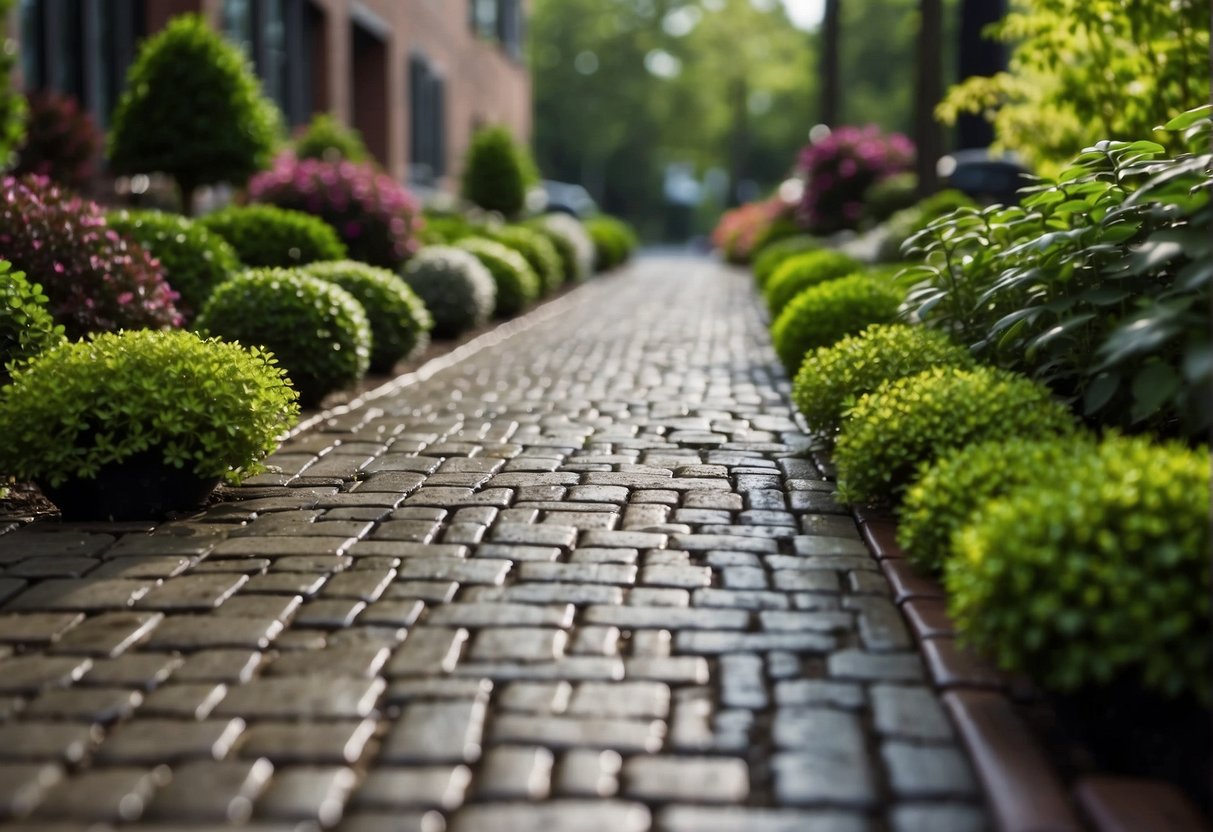
Permeable pavers in Fort Myers bring significant environmental advantages, particularly in areas prone to heavy rainfall and high temperatures. We’ll discuss how these pavers mitigate flood risks, recharge aquifers, and combat urban heat island effects.
Reducing Flood Risk
Permeable pavers are designed to allow water to pass through their surface, directly infiltrating into the ground below. This feature significantly reduces flood risk by:
- Improving drainage and reducing surface water runoff.
- Minimizing stress on urban sewer systems during heavy rainfall.
In Fort Myers, these pavers act as a resilient solution, fortifying the city against climate change-induced heavy precipitation events.
Enhancing Groundwater Recharge
Our environment greatly benefits from permeable pavers’ ability to promote water infiltration into the soil. Key points include:
- Replenishing aquifers: directing rainwater back into the ground replenishes local aquifers.
- Reducing soil erosion: by enabling water to percolate naturally, these pavers decrease the potential for soil erosion.
These features ensure that permeable pavers support a sustainable water cycle, crucial for Fort Myers’ environment.
Improving Urban Heat Island Effect
Permeable pavers contribute to mitigating the urban heat island effect. Their benefits are two-fold:
- Reflecting more sunlight and absorbing less heat compared to traditional pavement.
- Cooling the surrounding air as rainwater stored in the open aggregate layers evaporates.
Our utilization of permeable pavers can reduce high temperatures in urban areas, providing a more comfortable and sustainable living environment.
Design and Construction Considerations
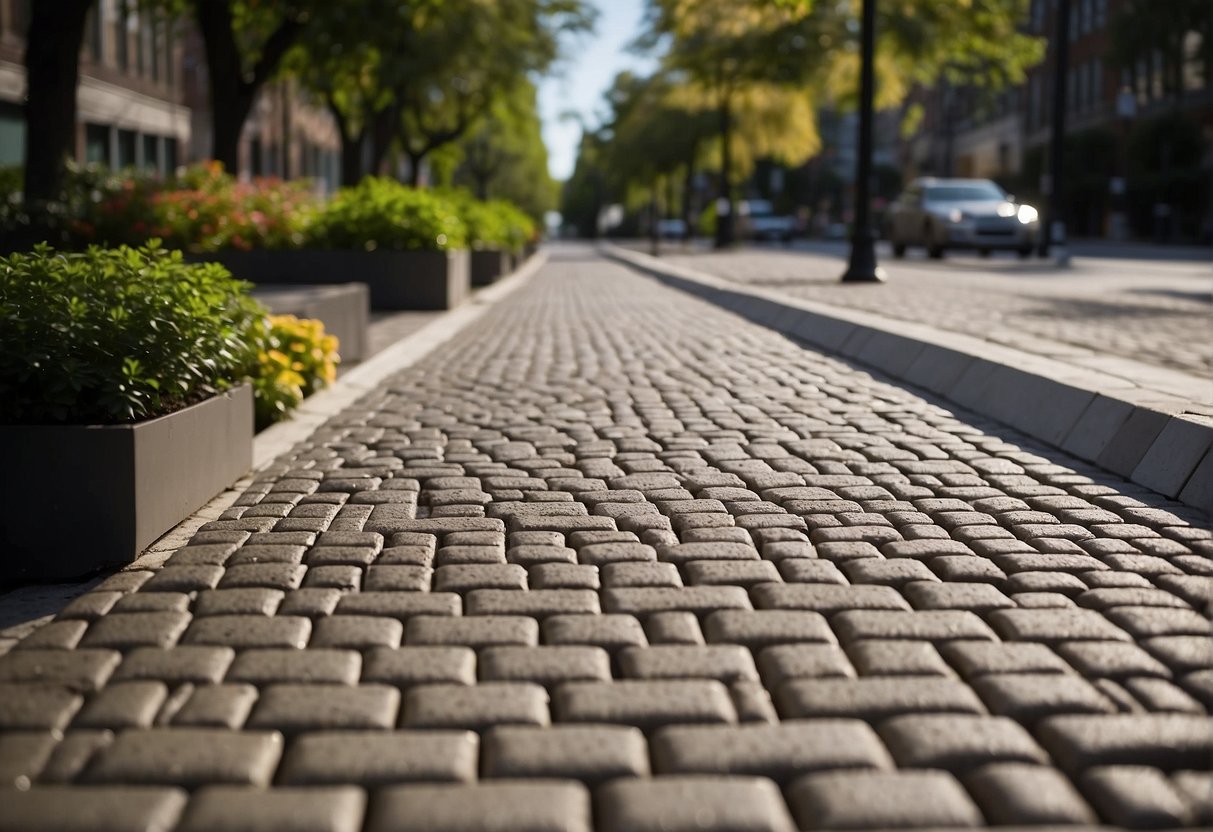
In designing and constructing permeable pavers in Fort Myers, we must take into account the unique environmental conditions and urban infrastructure needs. We carefully assess each site, select materials suitable for the local climate and usage, and adhere to best practices during installation.
Site Assessment and Planning
We begin by evaluating the site-specific conditions which include soil type, topography, and expected load-bearing requirements. To ensure proper drainage and functionality, a thorough examination of the existing and future water flow is essential. We also consider the integration of sustainable urban drainage systems (SuDS) to manage rainfall more sustainably.
Table 1: Site Assessment Factors
| Factor | Description | Importance |
|---|---|---|
| Soil Type | Determines infiltration rate and sub-base requirements | Critical |
| Topography | Influences surface water flow and drainage design | High |
| Load-Bearing | Guides pavement thickness and material strength | Essential |
Pavement Design and Material Selection
Choosing the right materials for permeable pavement involves balancing cost, durability, and ecological impact. We opt for materials that maintain their functionality over time with minimal maintenance. The design must account for local traffic patterns and the demands of the construction industry in urban areas.
Materials List:
- Gravel: Provides a sturdy and cost-effective option for the sub-base layer.
- Porous Concrete: Offers a balance between strength and permeability.
- Pervious Asphalt: Suited for areas with frequent vehicular traffic.
- Plastic Grids: Ideal for reinforcing green areas while allowing infiltration.
Installation Techniques and Best Practices
Our installation process is systematic, focusing on extending the lifespan of the pavement and optimizing its permeability. It is crucial to construct a well-engineered sub-base layer that supports the overlying pavers and promotes efficient water infiltration. Regular maintenance, including periodic cleaning of the surface to avoid clogging, ensures the longevity and performance of the pavement.
Installation Checklist:
- Prepare the site by removing debris and vegetation.
- Install a layered sub-base with the appropriate depth of compacted gravel.
- Ensure the surface is level to avoid water pooling.
- Place the selected permeable pavers according to the design specifications.
By adhering to these considerations, we build permeable pavements that are functional, sustainable, and aligned with Fort Myers’ developmental goals.
Applications and Uses
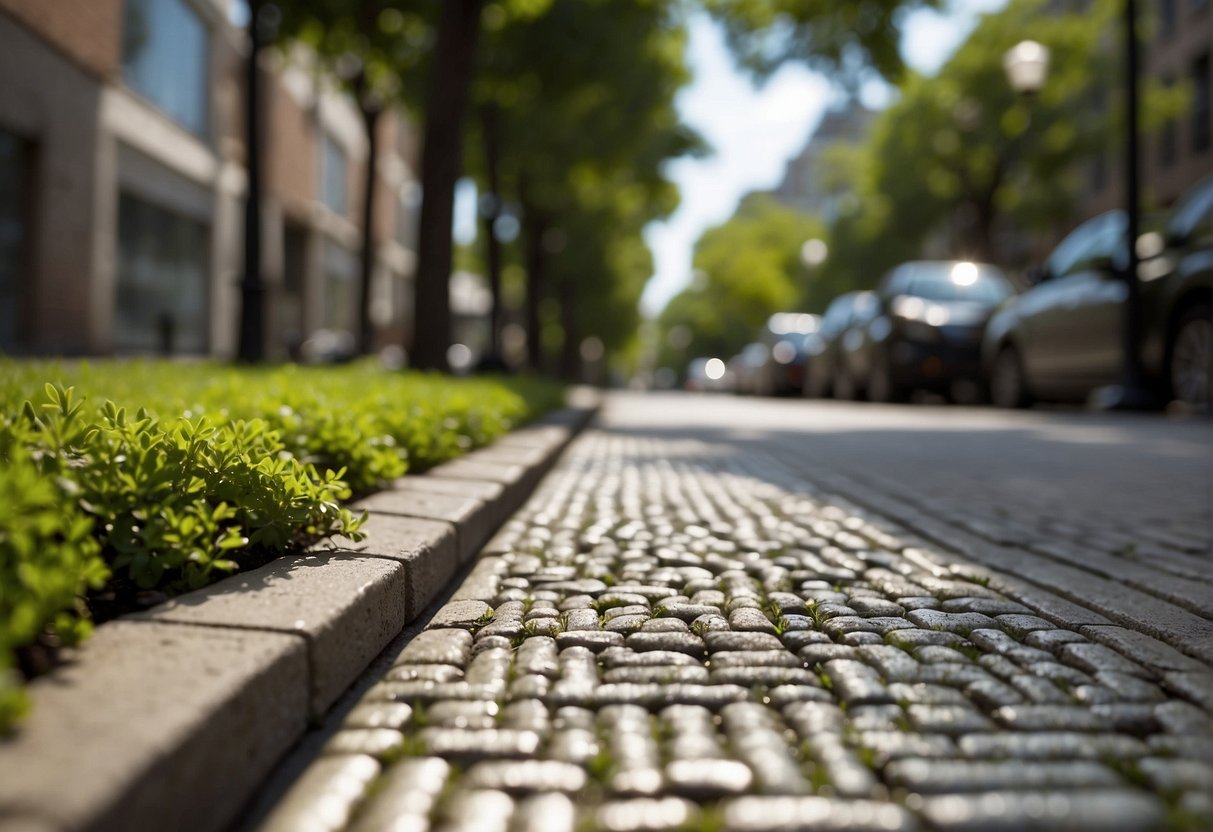
Permeable pavers offer us versatile solutions for various types of projects in Fort Myers. They aid in managing stormwater and reduce runoff, making them ideal for sustainable development and green infrastructure.
Residential and Commercial Spaces
For homeowners and developers, permeable pavers provide an effective way to create driveways and parking areas that reduce the impact on the environment. In residential spaces, they allow rainwater to infiltrate, decreasing the burden on stormwater systems. Our commercial developments benefit from these pavers by meeting regulations for green infrastructure while also offering a visually appealing parking solution.
- Homeowners: Use of permeable pavers for driveways and patios to enhance property value and environmental friendliness.
- Developments: Incorporation in new projects to meet standards for sustainability.
Water-Sensitive Urban Design
Our municipalities are increasingly adopting water-sensitive urban design (WSUD) to address urban water management challenges. Permeable pavers are a foundational element of WSUD, promoting the infiltration of stormwater where it falls.
- Green Spaces: Integration into public spaces to replenish groundwater and reduce heat island effect.
- Municipal Planning: Utilized in new urban developments to control runoff and mitigate flooding incidents.
By embracing permeable pavers in Fort Myers, we are creating spaces that support our commitment to sustainability and resilience in the face of environmental challenges.
Maintenance and Durability
Permeable pavers in Fort Myers offer a combination of low-maintenance benefits and impressive durability. They are designed to address runoff effectively and are a resilient alternative to traditional asphalt, especially within sustainable urban drainage systems.
Cleaning and Upkeep
To maintain permeable pavers, routine cleaning is essential to prevent clogging and maintain the system’s functionality. We recommend regular sweeping to remove debris and occasional vacuuming with specialized equipment to ensure that the pores between the pavers remain open. For common stains or spills:
- Oil or Grease: Use a mild degreaser and water.
- Organic Material: Apply a mixture of water and white vinegar.
Occasional deeper cleaning may involve pressure-washing with care to not dislodge the jointing material.
Longevity and Performance
Permeable pavers are known for their durable nature, often outlasting traditional pavement options. They are specially engineered to withstand heavy loads and frequent usage, offering the following performance advantages:
- Resilience: Capable of lasting up to 40 years, depending on usage and maintenance.
- Runoff Management: Excellent at mitigating the issue of water runoff, reducing the strain on urban drainage systems.
Factors such as local climate, the volume of traffic, and adherence to the recommended cleaning schedule will contribute to their longevity. It’s clear that with minimal upkeep, Fort Myers residents can rely on permeable pavers as a lasting pavement solution.
Regulations and Incentives
Implementing permeable pavers in Fort Myers is subject to regulations for stormwater management and can benefit from various incentives. We’ll examine the applicable guidelines and economic benefits.
Local and Federal Guidelines
Municipalities in Fort Myers must adhere to stormwater management regulations to mitigate the effects of runoff and flooding. These guidelines often emphasize the integration of Sustainable Urban Drainage Systems (SUDS) which include permeable paving solutions. On a federal level, the Environmental Protection Agency (EPA) encourages such systems through their policies, providing a framework for local compliance.
- Key Points:
- Permeable paving is recognized for minimizing urban runoff.
- Must align with EPA guidelines for stormwater management.
Subsidies and Economic Benefits
There are financial incentives for property owners and developers in Fort Myers who invest in permeable pavers. These can include subsidies or tax incentives designed to offset the initial cost. The economic benefits are not limited to direct financial support but also encompass long-term savings through reduced stormwater management costs.
- Incentive Examples:
- Tax credits for sustainable construction practices.
- Reduced stormwater utility fees for properties with SUDS.
By following these guidelines and taking advantage of incentives, Fort Myers can enhance its stormwater management systems while promoting environmentally sustainable practices.
Challenges and Limitations
Permeable pavers in Fort Myers offer significant environmental benefits, yet we must acknowledge certain challenges and limitations that come with their adoption. While they mitigate the risk of flooding and reduce the strain on stormwater management systems, their effectiveness hinges on proper installation and maintenance.
Overcoming Common Obstacles
We can encounter several obstacles when implementing permeable pavers. The first challenge is ensuring proper installation. Permeable pavers require a specific sub-base and setting bed to function effectively. Failure to comply with these requirements can lead to compromised permeability and reduced lifespan of the paving system.
| Obstacle | Strategic Response |
|---|---|
| Incorrect Installation | Educate contractors on proper installation techniques and oversight |
| Maintenance Requirements | Implement regular cleaning schedules to maintain permeability |
| Varying Load Bearing Capacity | Use pavers only in appropriate areas considering traffic load |
Another significant challenge is addressing the ongoing maintenance. Sediment accumulation can clog the pores of the pavers, reducing their ability to absorb water. To comb at this, it’s imperative that we establish and adhere to maintenance protocols which include regular sweeping and vacuuming of the pavement surface.
Addressing Misconceptions
Misconceptions regarding permeable pavers often deter their use. Some believe these pavers are unsuitable for high-traffic areas or that they don’t support heavy loads. However, with the correct design, permeable pavers can indeed be used in these situations. It’s vital we dispel such myths through public education and demonstrations to showcase their versatility.
| Misconception | Clarification |
|---|---|
| Unsuitable for High Traffic | Suitable designs exist for high-traffic application |
| Poor Aesthetic Appearance | Variety of colors and patterns can match traditional pavement looks |
| Higher Initial Cost is Prohibitive | Long-term savings on drainage infrastructure and flood mitigation |
Another notion is that permeable pavers contribute to local drainage systems’ issues. In reality, they help alleviate the strain on local systems by reducing runoff volume and rate. We must continue to provide clear and comprehensive information on the role of permeable pavers in enhancing local drainage systems, making the case for their environmental and practical benefits.
Frequently Asked Questions
In this section, we address some of the most common inquiries regarding the use of permeable pavers in Fort Myers, focusing on sustainability, maintenance, usability, and other factors for optimal use.
How do permeable pavers contribute to environmental sustainability?
We use permeable pavers to support environmental sustainability by allowing rainwater to filter through the surface, reducing runoff and replenishing groundwater. This helps to mitigate flooding and reduce pollutants entering water bodies.
What maintenance is required for permeable pavers?
Permeable pavers require routine maintenance, including sweeping to remove debris and occasional vacuuming to maintain their permeability. Pressure washing with appropriate filters can also be used to prevent clogging of the pores.
Can permeable pavers be used for driveways and high-traffic areas?
Yes, permeable pavers are suitable for driveways and high-traffic areas. They are designed to be durable and capable of withstanding the load of vehicles when installed with a proper base.
What type of base material is recommended for permeable paver installation?
We recommend using crushed stone as a base material for permeable paver installation. The stone aggregates allow for efficient water drainage and provide a strong foundation.
What are the advantages of concrete turf pavers over traditional pavers?
Concrete turf pavers offer several advantages over traditional pavers, including increased permeability, reduced heat island effect, and the ability to support grass growth which enhances the aesthetic and environmental benefits.
How do temperature and weather conditions affect the longevity of permeable pavers?
Temperature and weather conditions can influence the longevity of permeable pavers, with extreme changes potentially leading to expansion and contraction. However, permeable pavers are designed to accommodate these changes and are generally durable in various weather conditions. Regular maintenance can also help extend their lifespan.
